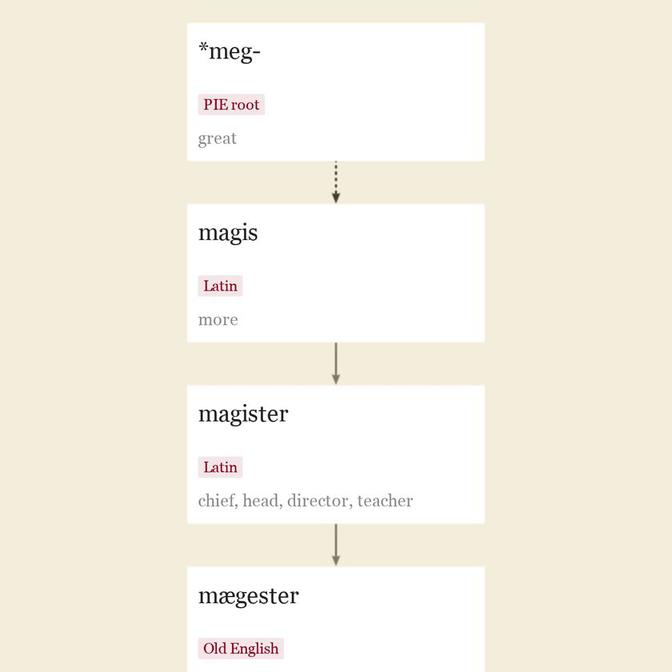ringmaster n.
"
Entries linking to ringmaster
[circular band] Old English hring "
Other Old English senses were "
The meaning "
Fairy ring is from 1620s. Ring finger, "
The nursery rhyme ring a ring a rosie is attested in an American form (with a different ending) from c. 1790. "

late Old English mægester "
From late 12c. as "
In the broadest sense, "
In academic sense "
Also used in Middle English of dominant women. From 1530s as "
As an adjective from late 12c. Master-key, one that will open ("
Master bedroom, "
The top floor was treated much the same as the two lower ones. Here the closet was made just a bit larger so as to allow for a bathtub, thus pushing the partition forward, making the front room less deep than the rooms below, yet paradoxically larger, because it takes in the whole front of the house. This is what is known in English advertisements as the "Master's bedroom." [The House Beautiful, June 1921]
updated on August 27, 2021